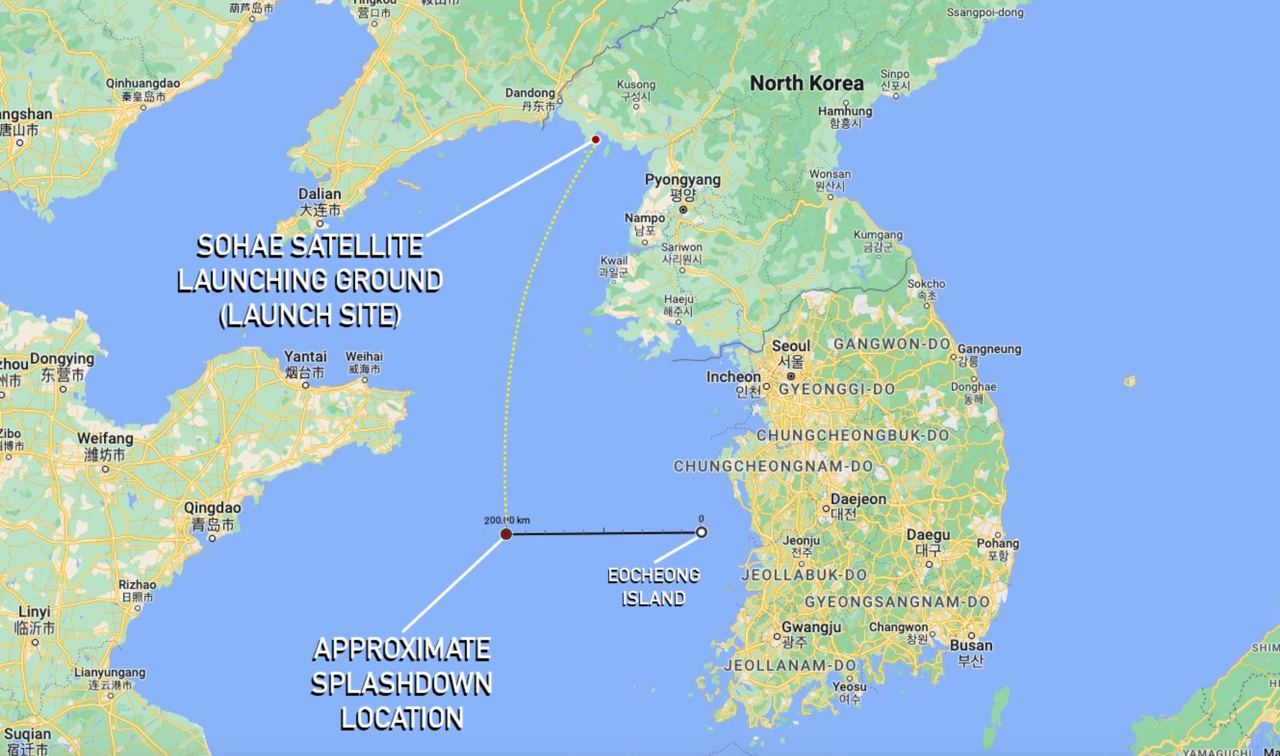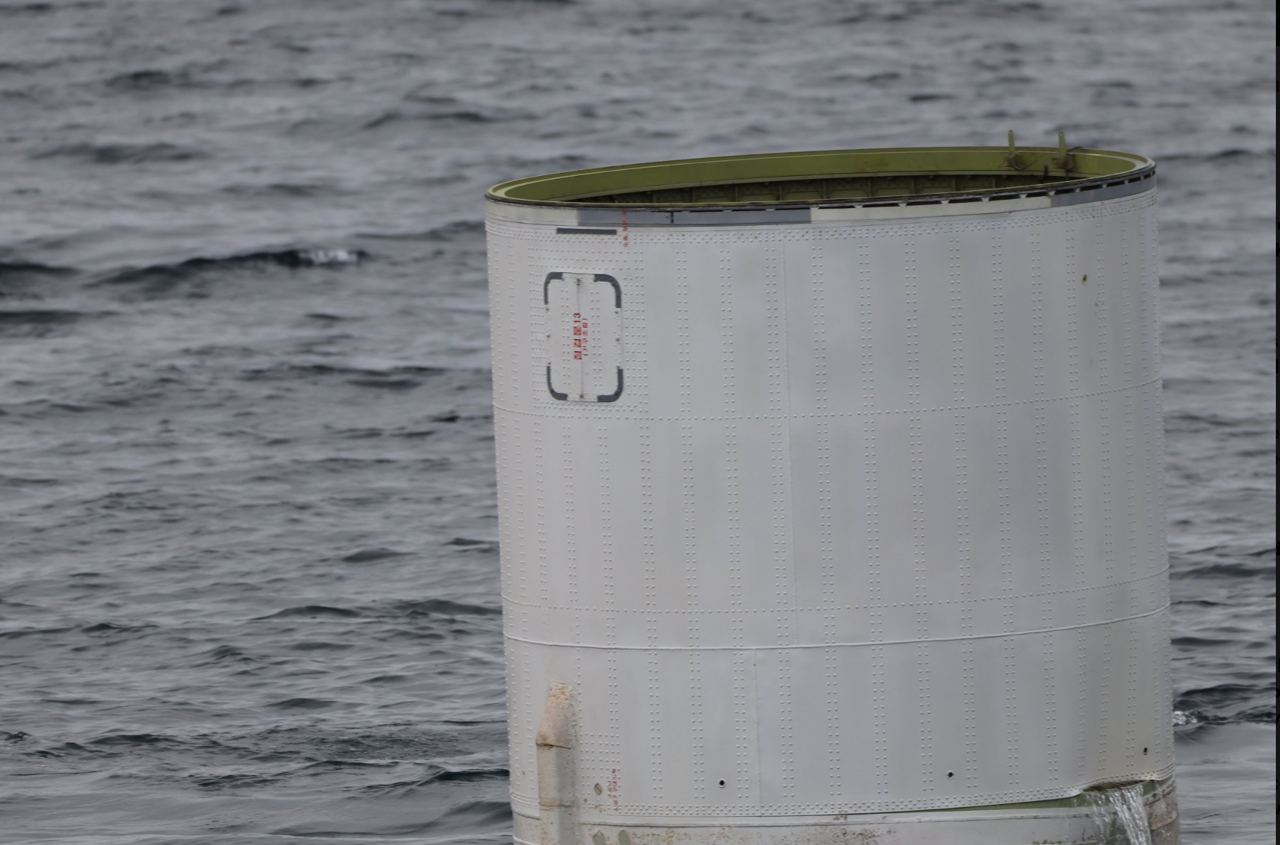North Korea’s reconnaissance satellite fell after a failed launch
31 May, 2023 Part of a North Korean Chollima-1 rocket, which was caught after falling. Photo credits: ROK JCS The first launch of North Korea's Malligyong-1 intelligence satellite ended in failure, but North Korea has promised to execute a second launch in the near future.
North Korea's state media reported that the first launch of a reconnaissance satellite failed, and the launch vehicle fell into the sea. The launch was recorded around 06:29 am from the Tongchang County area in the western North Pyongan Province. The satellite was heading in a southerly direction.
It is reported that the Chollima-1 launch vehicle failed due to engine and fuel system instability. Officials are already working to check the "serious" defects that caused the malfunction.
 Approximate site of launch and fall of the rocket. Source: NK News
Approximate site of launch and fall of the rocket. Source: NK News
After falling, parts of the rocket ended up in the water west of South Korea.
This is North Korea's first attempt to put a satellite into orbit since February 2016.
 Kim Jong Un inspects preparations for the planned launch of a military reconnaissance satellite with his daughter. Source: Rodong Sinmun (May 17, 2023)
Kim Jong Un inspects preparations for the planned launch of a military reconnaissance satellite with his daughter. Source: Rodong Sinmun (May 17, 2023)
Before the launch, a North Korean official announced that the military intelligence satellite was to monitor "dangerous military actions" by the US and South Korea. The US called this launch a "brazen violation" of UN resolutions, which "increases tensions and creates the risk of destabilizing the security situation in the region and beyond."
 Part of a North Korean Chollima-1 rocket, which was caught after falling.
Part of a North Korean Chollima-1 rocket, which was caught after falling.
Photo credits: ROK JCS
It was emphasized that the launch "included technologies directly related to the intercontinental ballistic missile program of the DPRK."